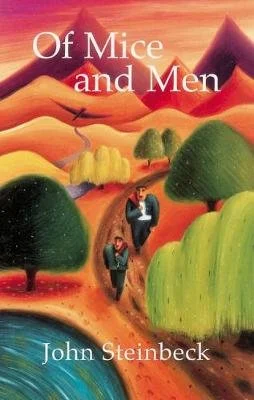Why ‘Of Mice and Men’ and ‘To Kill a Mockingbird’ Still Matter
In an era where inclusivity and safeguarding are at the heart of education, one might assume we are becoming more enlightened. But when literature is stripped from classrooms in fear of offending, we must pause and ask: are we truly protecting students—or are we narrowing their minds?
This September, John Steinbeck’s Of Mice and Men will be removed from the Welsh GCSE English Literature syllabus. According to the BBC, “The classic American novel Of Mice and Men will no longer be studied at GCSE in Wales from next September amid concerns about racism and the use of racial slurs.” Joining it in exclusion is Harper Lee’s To Kill a Mockingbird—another literary cornerstone renowned for its searing critique of racism and injustice in America’s Deep South. These decisions, though well-meaning on the surface, reflect a troubling trend: we are beginning to turn away from literature that dares to make us uncomfortable, and in doing so, we are denying students the chance to grow.
Of Mice and Men is far more than a tale of two displaced workers during the Great Depression. It is a haunting exploration of mental illness, vulnerability, and what it means to be human in a society that discards the weak. Lennie Small, with his cognitive disability, is a character whose story has sparked essential conversations about how people with mental health challenges are perceived and treated. To remove this text from the classroom is to erase a rare, honest portrayal of mental disability from the literary canon—a portrayal that has for decades cultivated empathy, discussion, and deeper understanding among students.
Equally vital is To Kill a Mockingbird, a novel that forces us to examine the enduring legacies of racism, injustice, and moral courage. Through the eyes of young Scout Finch, readers confront the failings of the legal system, the dangers of prejudice, and the cost of standing for what is right. In a world still grappling with systemic racism & prejudice , the removal of this novel sends the message that rather than engaging with these difficult themes, we should silence them for the sake of comfort.
Books that have been banned in countries around the world include; Harry Potter, 1984, The Handmaid’s tale, To Kill a Mockingbird, Animal Farm.
But education should not be comfortable. It should challenge, provoke, and inspire. Literature, especially, is meant to hold a mirror to society, to show us where we’ve come from, and to provoke questions about where we’re going. By avoiding books that contain offensive language or portray uncomfortable truths, we risk creating a generation of students ill-equipped to face the complexities of the world beyond the classroom.
It is deeply ironic that in the name of inclusivity, we are excluding voices and stories that have contributed so much to the fight for empathy and justice. Both Of Mice and Men and To Kill a Mockingbird have been central to conversations about mental health, race, and morality. Without them, would we have progressed as far in understanding and supporting those who live on the margins of society? Would we even recognise the power of literature to drive social change?
Yes, these novels include racial slurs and depictions of prejudice. But so does history. Rather than censoring the past, we should be equipping students to confront it thoughtfully and critically. We cannot afford to raise young people in sanitized classrooms where everything difficult is avoided and every rough edge is smoothed. Growth requires friction. And literature like this provides it.
If we continue to remove such texts from our curriculum, we don’t just lose books—we lose context, we lose dialogue, and we lose the chance to help students become thoughtful, compassionate citizens. Protecting children does not mean hiding the world from them. It means preparing them to face it—with understanding, empathy, and resilience.
Let us not silence the stories that shaped our awareness of injustice and mental health. Let us teach them, discuss them, challenge them—and in doing so, honour the legacy of literature as a force for truth.
Let’s stop sanitising the past and start giving students the full, honest, and difficult truths that only great literature can provide.
Do you remember a book that made you feel uncomfortable or challenged your ideas? Are you glad you read it? or do you wish you’d never picked it up?







